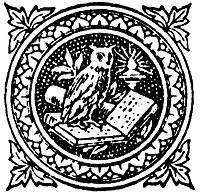Marginalia
Home
About Marginalia
Current Issue
Archived Issues
Notes to Contributors
Links to Other Online Journals
Marginalia -- The Website of the MRG
The Poetry of Praise
Cambridge:Cambridge University Press, 2008. £45.00/$90.00
ISBN 978-0521-88693-2
Medieval scholars will be especially pleased to see chapters on 'Old English especially Beowulf', 'Middle English' and 'Chaucer'. These build on the excellent introduction to Classical eulogy in chapter 1. Burrow delineates the Aristotelian dichotomy of invective and praise and summarises the importance of epainos and psogos in the Rhetoric which, through its translation in Latin handbooks of rhetoric, was central to teaching in the medieval Schools. A detailed study of such medieval writers as John of Garland, Geoffrey of Vinsauf and Vincent of Beauvais demonstrates that praise remains an important function of poetry in the later Middle Ages.
The blossoming of Middle English praise poetry after the turn of the thirteenth century as the vernacular became a viable alternative to Latin and French for higher registers gives Burrow a wide range of material for his third chapter. It surveys the odes and panegyrics of the period and interestingly suggests that in 'Middle English overall, here-and-now praises are more often and more emphatically directed at female than at male subjects' (p.66). This reflects, in part, the enormous quantity of Marian devotion; furthermore it points to a growth in vernacular love poetry. Burrow covers an admirable selection of material with reference to anonymous lyrics as well as the work of Lydgate, Dunbar, Douglas and the Gawain-poet among others. The final section of the chapter examines three epic 'historical' narratives: La3amon's Brut, the Morte Arthure and the Wars of Alexander. These Middle English epics clearly demonstrate the role of praise in times of war, reminding us, perhaps, of the centrality of praise to their classical ancestors. Having established this, Burrow uses the example of Sir Gawain and the Green Knight to ask how praise functions in peacetime. As medievalists will know, the ending of Gawain with its co-existence of praise (from the court) and blame (from himself) for the hero can lead to many and varying interpretations of the poem. Burrow suggests that knowledge of the rhetoric and tradition of praise poetry can augment our understanding of this problematic ending. He concludes that the articulation of praise in the poem is used by the Gawain-poet to encourage the reader to notice the way 'in which discrepant judgements relate meaningfully to each other and to the positions from which they are spoken' (p.100). Reading into gaps is a favourite sport for Chaucer scholars so the conclusion of this chapter leads neatly into Burrow's analysis of Chaucer's praise.
Burrow looks first at praise within individual tales. The final part of the chapter contributes to the ever-present question of how to read Chaucerian characterisation and its thoroughness illustrates the author's deep knowledge of the canon. Burrow shows that 'inflexions toward irony' (p.149) are present in Chaucer's praise of people but he points out that our modern taste for irony should not cloud our ability to notice the places in which 'Clere Laude' (House of Fame, 1575) is present within the text.
With its range of 2000 years, the book cannot, perhaps, offer the detailed reading of some Middle English texts that medievalists would like. However, the scope of the book is to be celebrated and it will be an extremely useful addition to the libraries of students who wish to understand the role of praise in medieval literature.
Linda Bates, University of Cambridge
 Contents |  Next |
© 2004 The authors and the Medieval Reading Group at the University of Cambridge
No material may be reproduced without written authority.
Last modified on .
Marginalia -- MRG Website::Contact Us::About Us::Credits and Thanks::Search::Archives

